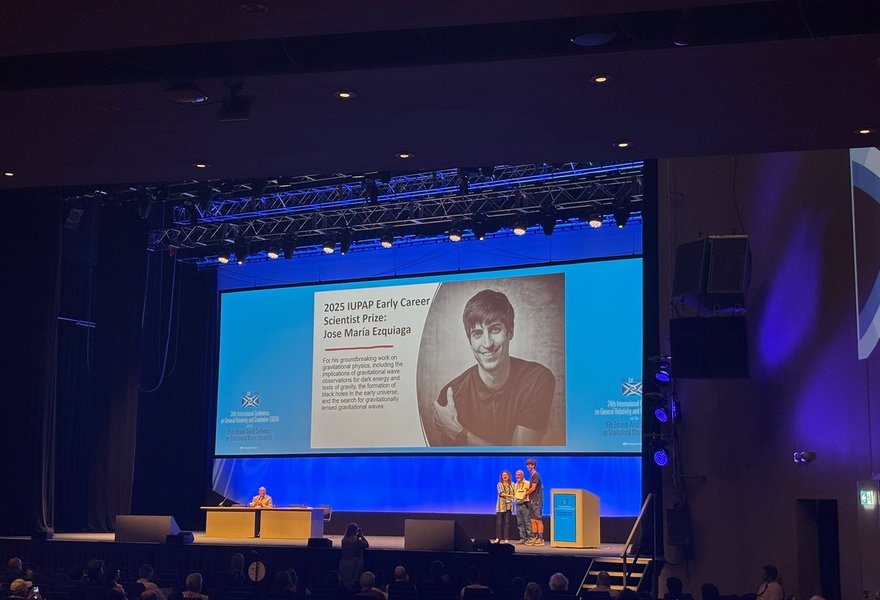Associate Professor Jose M. Ezquiaga Receives 2025 IUPAP General Relativity and Gravitation Early Career Prize

Albert Einstein’s theory of general relativity (GR) changed the world and, soon after its formulation, made headlines in newspapers around the globe. However, it took several decades for the scientific community to fully embrace its significance. The Chapel Hill Conference of 1957 marked the beginning of a still-standing series on general relativity (“GR1”) that revitalized the field and laid the groundwork for the International Society of General Relativity and Gravitation (ISGRG). The Society was officially founded at the 1971 GR6 conference in Copenhagen.
As an affiliated commission of the International Union of Pure and Applied Physics (IUPAP), ISGRG offers an annual prize to recognize outstanding achievements by scientists in the early stages of their careers. This year, Niels Bohr Institute Associate Professor Jose Maria Ezquiaga was awarded the 2025 IUPAP General Relativity and Gravitation Early Career Prize “for his groundbreaking work on gravitational physics, including the implications of gravitational wave observations for dark energy and tests of gravity, the formation of black holes in the early universe, and the search for gravitationally lensed gravitational waves.”
The prize ceremony took place on July 16 in Glasgow at the GR24 meeting, with several hundred participants.
For more information about the prize and previous awardees, please visit the ISGRG webpage.
July 21, 2025, 8:38 a.m.